News
+ more news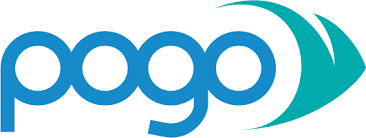
2019 Special POGO Visiting Fellowship for Ship-board Training on an Antarctic Deep Water Rates of Export (ANDREX) Cruise
Thursday, 04 October 2018
We are pleased to let you know that Partnership for Observation of the Global Ocean (POGO), in partnership with Plymouth Marine Laboratory (PML), is offering a POGO-PML Visiting Fellowship for training on-board an Antarctic Deep Water Rates of Export (ANDREX) Cruise. The selected candidate will have the opportunity to visit PML for one month prior to the start of the cruise to participate in cruise preparation and planning; and to go on the cruise (February 14 to April 10, 2019) to help make biogeochemical observations (carbonate and oxygen chemistry).
The deadline for applications for the 2019 fellowship is Wednesday 17 October 2018. All applicants will be informed of the decision within one month of the deadline.
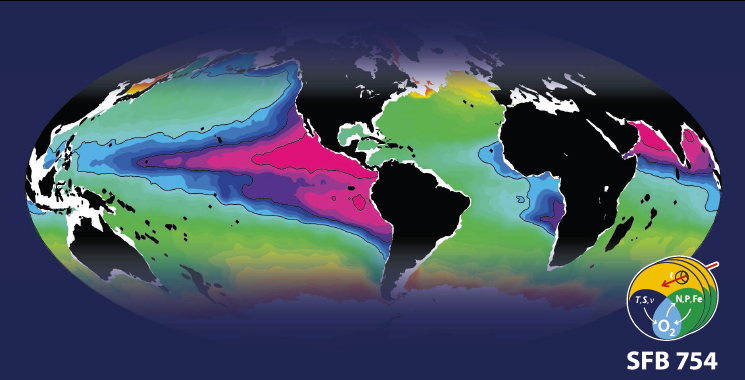
Kiel Declaration on Ocean Deoxygenation: "The ocean is losing its breath"
Tuesday, 02 October 2018
We would like to bring to your attention the recently published „Kiel Declaration on Ocean Deoxygenation" in which participants of the International Ocean Deoxygenation Conference (https://conference.sfb754.de/event/1) urgently call for more marine and climate protection as "the ocean is losing its breath." The document is one of the outcomes of the conference held on 2-7 September 2018 in Kiel, Germany. More than 300 scientists from 33 countries attended the conference to discuss the decline of oxygen, its causes and consequence. At the conclusion of the conference, the scientists published the „Kiel Declaration". Everyone who is concerned about ocean deoxygenation and agrees to the declaration is welcome to sign to show their support. You can read and sign the declaration by following this link: https://www.ocean-oxygen.org/declaration

Applications open for Ocean Teacher Global Academy training course on Ocean Data Management for Researchers
Friday, 28 September 2018
We would like to let you know about an upcoming training course offered by the Ocean Teacher Global Academy (OTGA) on ![]() Ocean Data Management for Researchers, held on 3-7 December at the IOC-UNESCO Project Office for International Oceanographic Data and Information Exchange (IODE) in Oostende, Belgium. This training course is aimed at researchers at the post-graduate level and provides a comprehensive introduction to a variety of marine datasets and formats and the use of software for synthesis and analysis of marine data. The importance of good research data management practices and the role of researchers will also be highlighted. Personal projects are presented by the students at the end of the course. Please note that priority will be given to participants originating from Europe and North African countries. UNESCO is committed to promote gender equality. Therefore, applications from women are strongly encouraged. A Certificate of Participation will be issued to all successful students.
Ocean Data Management for Researchers, held on 3-7 December at the IOC-UNESCO Project Office for International Oceanographic Data and Information Exchange (IODE) in Oostende, Belgium. This training course is aimed at researchers at the post-graduate level and provides a comprehensive introduction to a variety of marine datasets and formats and the use of software for synthesis and analysis of marine data. The importance of good research data management practices and the role of researchers will also be highlighted. Personal projects are presented by the students at the end of the course. Please note that priority will be given to participants originating from Europe and North African countries. UNESCO is committed to promote gender equality. Therefore, applications from women are strongly encouraged. A Certificate of Participation will be issued to all successful students.
Application deadline: 15 October 2018
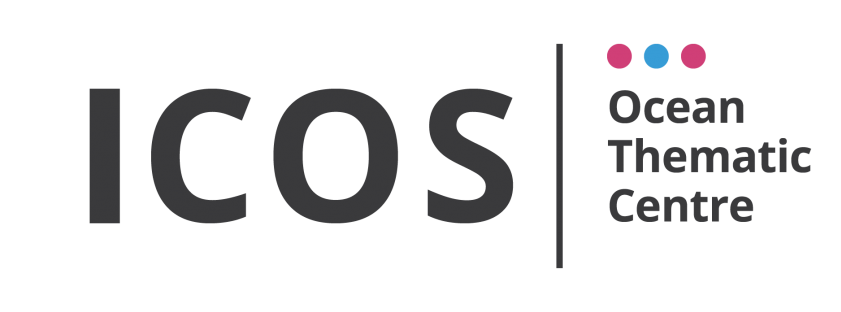
Vacancy: Director of the Integrated Carbon Observation System (ICOS) Ocean Thematic Centre (OTC)
Thursday, 27 September 2018
We would like to let you know that the Ocean Thematic Centre (OTC) which is one of the central facilities of the pan-European research infrastructure, Integrated Carbon Observation System (ICOS RI), is recruiting a new director. The OTC director will be the pivotal voice of the OTC and further develop the strategic vision for the marine network of ICOS, and overseeing its implementation together with the OTC staff in Bergen, Norway, and in the United Kingdom. The director will be part of the Bjerknes Centre for Climate Research, the largest climate research centre in the Nordic countries and among the leading centres in Europe. From 2019 it is expected that the UK will co-host the OTC through the National Oceanography Centre, University of Exeter and Plymouth Marine Laboratory. This is a full-time and permanent position with a negotiable start date.
Application deadline: 10 October 2018. For more information about the position please see our site HERE.
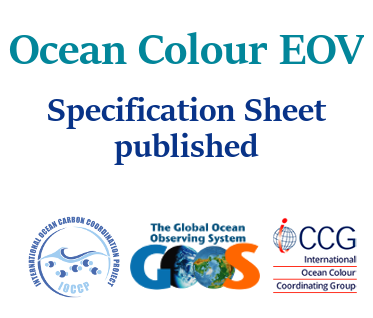
Ocean Colour EOV Specification Sheet published
Monday, 24 September 2018
We are happy to inform you that the Ocean Colour Essential Ocean Variable (EOV) Specification Sheet has been published and is available for ![]() viewing and download (for more information on the EOV process visit our site HERE.) To access all the Global Ocean Observing System (GOOS) EOV Specification Sheets, please follow this link: www.goosocean.org/eov.
viewing and download (for more information on the EOV process visit our site HERE.) To access all the Global Ocean Observing System (GOOS) EOV Specification Sheets, please follow this link: www.goosocean.org/eov.
The document has been prepared as a joint effort by the International Ocean Colour Coordination Group (IOCCG) and GOOS Panels. The challenge of describing the multidisciplinary requirements and applications of ocean colour measurements was met by a task team of dedicated experts from IOCCG Committee and GOOS Expert Panels: Emmanuel Boss (University of Maine, USA), Frank Muller-Karger (University of South Florida, USA), Rosalia Santoleri (Consiglio Nazionale delle Ricerche, Italy), Simon Bélanger (Université du Québec à Rimouski, Canada) and Taka Hirata (Hokkaido University, Japan). Extensive feedback was obtained through two rounds of review provided by the IOCCG Committee, which consists of members drawn from national space agencies and the ocean colour community. We hope that the observing community will find this document useful in the process of implementing the vision for multi-disciplinary and multi-platform sustained ocean observing system.
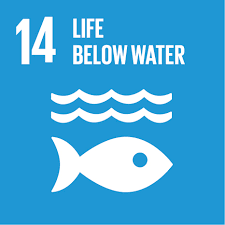
SDG Indicator 14.3.1 Methodology accepted by the IOC-UNESCO Executive Council
Thursday, 13 September 2018
We would like to let you know that during its 51st Executive Council Meeting in July 2018, the Member States of the Intergovernmental Oceanographic Commission (IOC) of UNESCO welcomed the Methodology for the Sustainable Development Goal (SDG) Target Indicator 14.3.1. The SDG Target Indicator 14.3.1 calls for "average marine acidity measured at an agreed suite of representative sampling stations". The Methodology provides guidance to scientists and countries about how to carry out measurements following the best practices established by experts in the ocean acidification community, including members of the Global Ocean Acidification Observing Network (GOA-ON) and IOCCP, and explains how to report the collected information. You can view the accepted Methodology, available in English, French, Spanish and Russian HERE.
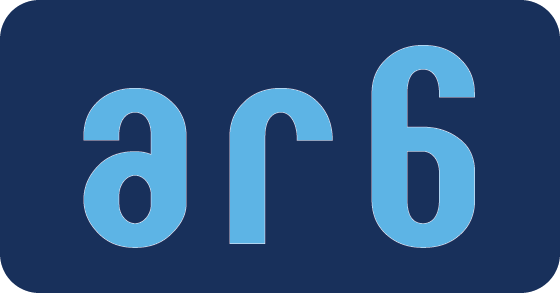
Critical dates for proposed paper contributions for IPCC 6th Assessment Report Working Group 1.
Thursday, 06 September 2018
We would like to inform you about two critical dates for scientific paper submission and acceptance for proposed paper contributions to be used by the 1st Working Group of the IPCC 6th Assessment Report (AR6-WG1). Of particular interest to our community is Chapter 5: Global Carbon and other Biogeochemical Cycles and Feedbacks. The process is open to accepting drafts of papers under review - they will be provisionally included in the literature database. You can view the full IPCC AR6 WG1 timeline together with background information and chapter outlines at this link: https://wg1.ipcc.ch/AR6/AR6.html
Latest submission for review date: 31 December 2019
Latest acceptance for publication date: 30 September 2020
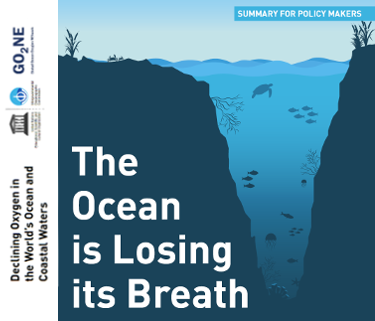
The Ocean is Losing its Breath – summary for policy makers published
Tuesday, 04 September 2018
We are happy to share a recently published Summary for Policy Makers on "Declining Oxygen in the World's Ocean and Coastal Waters" developed by the Global Ocean Oxygen Network (GO2NE).
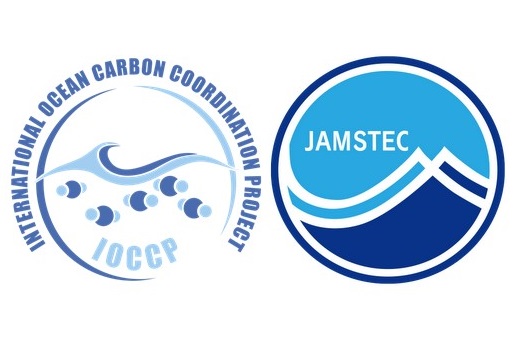
IOCCP-JAMSTEC 2018 Nutrients Intercomparison report published
Monday, 03 September 2018
We are excited to announce the publication of the report of the ![]() IOCCP-JAMSTEC 2018 Inter-laboratory Comparison Exercise of a Certified Reference Material (CRM) for Nutrients in Seawater. We would like to congratulate Prof. Michio Aoyama and the team for leading the activity, and the 69 laboratories that participated in this 6th intercomparison exercise. It is heartening to see that most of these laboratories are able to analyse nutrients concentration within the certified uncertainty of the unknowns provided. The recommendations included in this report provide guidance for increasing the ability of the global community to answer questions about the changing marine macronutrient environment.
IOCCP-JAMSTEC 2018 Inter-laboratory Comparison Exercise of a Certified Reference Material (CRM) for Nutrients in Seawater. We would like to congratulate Prof. Michio Aoyama and the team for leading the activity, and the 69 laboratories that participated in this 6th intercomparison exercise. It is heartening to see that most of these laboratories are able to analyse nutrients concentration within the certified uncertainty of the unknowns provided. The recommendations included in this report provide guidance for increasing the ability of the global community to answer questions about the changing marine macronutrient environment.
For more information about the activity, please see our site HERE.

GOOS webinar on Ocean Best Practices by Juliet Hermes, 9 August, 15:00 GMT
Monday, 06 August 2018
On August 9, 2018, at 15:00 GMT Juliet Hermes from the South African Environmental Observation Network (SAEON) will give a webinar as part of the GOOS series. She will speak on the Ocean Best Practices global initiative, run by an international working group supported by a number of organisations including JCOMM, UNESCO-IOC/IODE, GOOS, AtlantOS, ODIP and IEEE (amongst others). Click this LINK to join the webinar to register and be reminded to join at the appropriate time.
The IOCCP promotes the development of a global network of ocean carbon observations for research through technical coordination and communication services, international agreements on standards and methods, and advocacy and links to the global observing systems. The IOCCP is co-sponsored by the Scientific Committee on Oceanic Research and the Intergovernmental Oceanographic Commission of UNESCO. Read more…
Calendar
|
|
IOCCP meetings, IOCCP-related meetings as well as events related to a wider scope in marine biogeochemistry. |



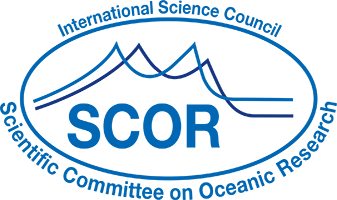

 Please wait...
Please wait...